- Home
- Quizzes
- My Quiz Activity
- Newsletters
- Sports Betting
- MY FAVORITES
- Add Sports/Teams
- SPORTS
-
NFL
- NFL Home
- Arizona Cardinals
- Atlanta Falcons
- Baltimore Ravens
- Buffalo Bills
- Carolina Panthers
- Chicago Bears
- Cincinnati Bengals
- Cleveland Browns
- Dallas Cowboys
- Denver Broncos
- Detroit Lions
- Green Bay Packers
- Houston Texans
- Indianapolis Colts
- Jacksonville Jaguars
- Kansas City Chiefs
- Las Vegas Raiders
- Los Angeles Chargers
- Los Angeles Rams
- Miami Dolphins
- Minnesota Vikings
- New England Patriots
- New Orleans Saints
- New York Jets
- New York Giants
- Philadelphia Eagles
- Pittsburgh Steelers
- San Francisco 49ers
- Seattle Seahawks
- Tampa Bay Buccaneers
- Tennessee Titans
- Washington Commanders
-
MLB
- MLB Home
- Arizona Diamondbacks
- Atlanta Braves
- Baltimore Orioles
- Boston Red Sox
- Chicago White Sox
- Chicago Cubs
- Cincinnati Reds
- Cleveland Guardians
- Colorado Rockies
- Detroit Tigers
- Houston Astros
- Kansas City Royals
- Los Angeles Angels
- Los Angeles Dodgers
- Miami Marlins
- Milwaukee Brewers
- Minnesota Twins
- New York Yankees
- New York Mets
- Oakland Athletics
- Philadelphia Phillies
- Pittsburgh Pirates
- San Diego Padres
- San Francisco Giants
- Seattle Mariners
- St. Louis Cardinals
- Tampa Bay Rays
- Texas Rangers
- Toronto Blue Jays
- Washington Nationals
-
NBA
- NBA Home
- Atlanta Hawks
- Boston Celtics
- Brooklyn Nets
- Charlotte Hornets
- Chicago Bulls
- Cleveland Cavaliers
- Dallas Mavericks
- Denver Nuggets
- Detroit Pistons
- Golden State Warriors
- Houston Rockets
- Indiana Pacers
- Los Angeles Clippers
- Los Angeles Lakers
- Memphis Grizzlies
- Miami Heat
- Milwaukee Bucks
- Minnesota Timberwolves
- New Orleans Pelicans
- New York Knicks
- Oklahoma City Thunder
- Orlando Magic
- Philadelphia 76ers
- Phoenix Suns
- Portland Trail Blazers
- Sacramento Kings
- San Antonio Spurs
- Toronto Raptors
- Utah Jazz
- Washington Wizards
-
NHL
- NHL Home
- Anaheim Ducks
- Boston Bruins
- Buffalo Sabres
- Calgary Flames
- Carolina Hurricanes
- Chicago Blackhawks
- Colorado Avalanche
- Columbus Blue Jackets
- Dallas Stars
- Detroit Red Wings
- Edmonton Oilers
- Florida Panthers
- Los Angeles Kings
- Minnesota Wild
- Montreal Canadiens
- Nashville Predators
- New Jersey Devils
- New York Islanders
- New York Rangers
- Ottawa Senators
- Philadelphia Flyers
- Pittsburgh Penguins
- San Jose Sharks
- Seattle Kraken
- St. Louis Blues
- Tampa Bay Lightning
- Toronto Maple Leafs
- Utah Hockey Club
- Vancouver Canucks
- Vegas Golden Knights
- Washington Capitals
- Winnipeg Jets
- NCAAF
- NCAAM
- Olympics
- Boxing
- Entertainment
- Lifestyle
- Golf
- MMA
- Soccer
- Tennis
- Wrestling
- More Sports
- RESOURCES
- My Account
- YB on Facebook
- YB on Twitter
- YB on Flipboard
- Contact Us
- Privacy Policy
- Terms of Service
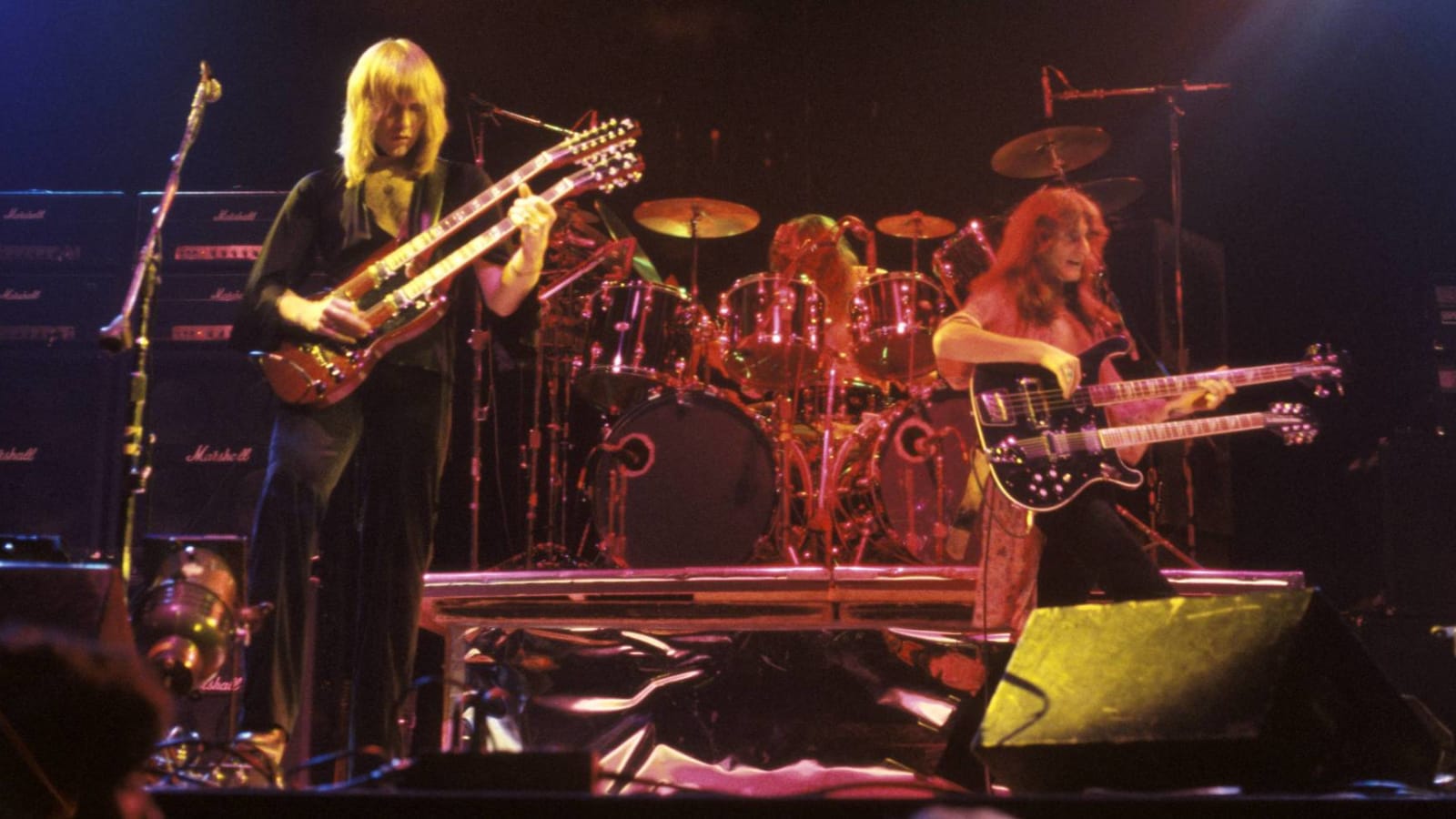
Rush established itself as arguably the best progressive rock band of all time for four decades. Its fan base is loyal, and there aren't many rock fans who will say a bad word about the band.
Sadly, the January 2020 passing of legendary drummer Neil Peart essentially signaled the end of Rush as a band, though Alex Lifeson had announced Rush was retiring from touring years prior.
Here is our essential Rush playlist.
"Tom Sawyer" (1981)
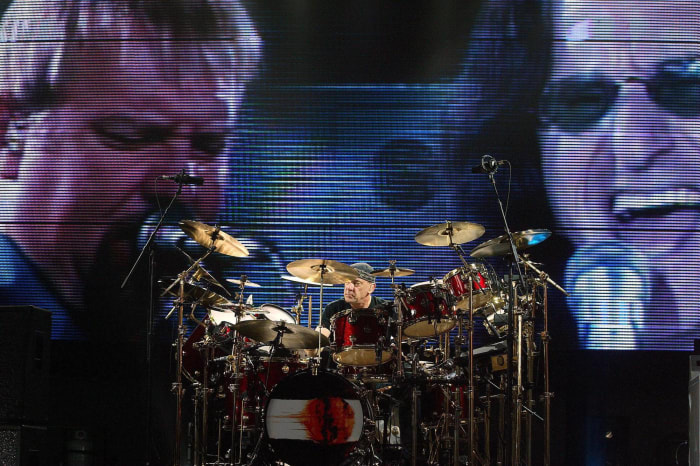
One of the great album openers of all time is perfect for kicking off our playlist. "Tom Sawyer," with its futuristic-like keyboard work, is arguably the band's most popular song. Bassist/keyboardist Geddy Lee called it Rush's "defining piece of music ... from the early '80s." It's one Rush track that showcases the brilliance of each band member. Neil Peart's legendary drum fills tend to be the highlight.
"The Spirit of Radio" (1980)
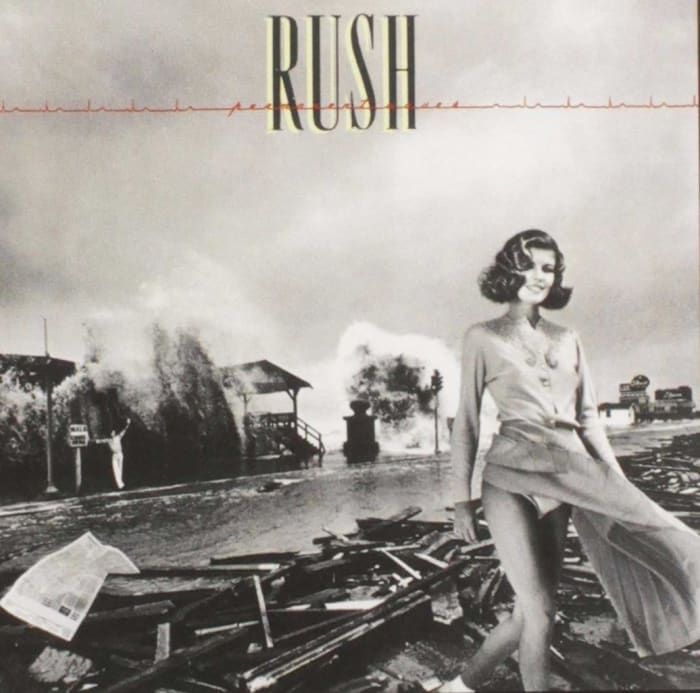
If "Tom Sawyer" is a quality lead-off track, "The Spirit of Radio" makes sense in the No. 2 spot because of its captivating opening. It was also one of the highlights of Rush's spectacular live shows. From 1980's Permanent Waves, the tune was the first Rush song to crack the top 30 in Canada and nearly reached the top 50 in the United States.
"Bastille Day" (1975)

Like just about any prominent band through the course of its career, historical moments and events provide inspiration. In this case, Rush chose to showcase the beginning of the French Revolution. Following its release of the Caress of Steel album, "Bastille Day," highlighted by its fast-paced, thundering beginning, opened many live shows. However, the band stopped playing the track live in its original form after the early 1980s.
"Working Man" (1974)

The closing track on Rush's self-titled debut record is still a classic rock staple. The song features original drummer John Rutsey, who would be replaced by late legend Neil Peart on the band's second album, Fly by Night. Though Rush is perhaps the greatest progressive rock band of all time, "Working Man" is pure hard rock at its best. Alex Lifeson's memorable guitar solo has an almost Black Sabbath-like sound that makes it easy to understand why fans from all over the rock map are drawn to the group.
"Fly by Night" (1975)
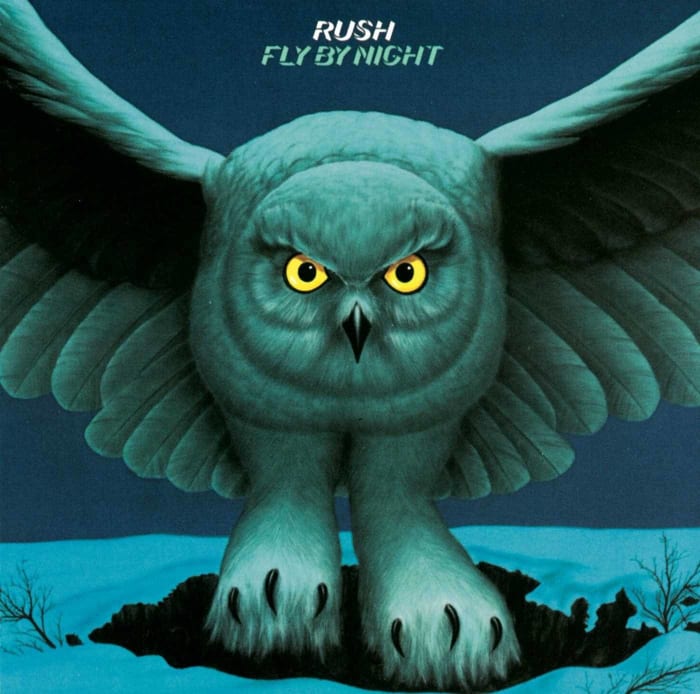
As mentioned, this album was Neil Peart's debut with the band. As they say, the rest is musical history. Peart reportedly wrote the lyrics of the famed title track about leaving home for the first time and heading to England. While the track might not resonate the same way with every Rush fan, it still enjoys regular play on classic rock radio. It's another example of some early pure rock-and-roll from the band but also truly showcases Geddy Lee's unique vocals in full force.
"Limelight" (1981)
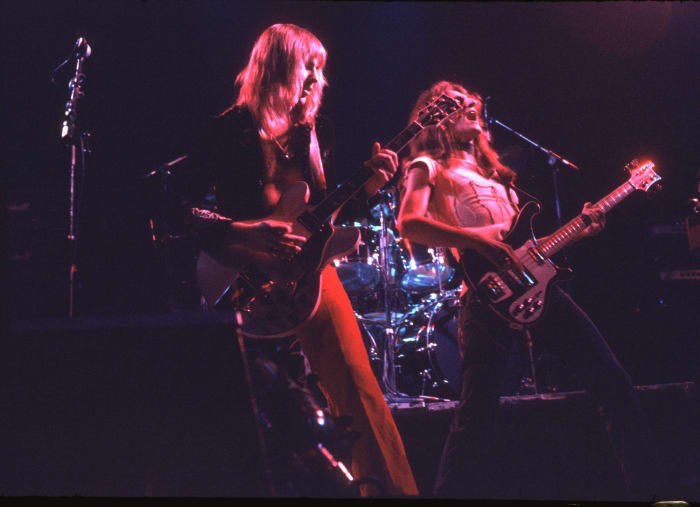
During the lengthy career of any prominent band, the obligatory song about dealing with success surfaces. Rush's contribution to the topic is another gem from Moving Pictures. One of the most laid-back bands of all time, the Rush trio rarely drew attention to themselves, but their fans have risen to cult-like status — regardless if we are talking about the classic era of the 1970s or the synthesized, more experimental run during the 1980s, '90s, and well into the 2000s.
"Freewill" (1980)

Talk about a 1-2 punch of "The Spirit of Radio" and "Freewill" to open the widely celebrated Permanent Waves album. This is Rush's take on freedom of choice and the will to be as one wants to be. The band, as fans know, never conformed to whatever the musical landscape resembled at the time.
"Subdivisions" (1982)

Signals, the follow-up album to Moving Pictures, further advanced Rush's use of synthesizers. "Subdivisions" is at the forefront of that direction. The album's opening track talks about teenage and adolescent social conformity in the cookie-cutter world of suburban sprawl. Thus, those not part of such "culture" are deemed outcasts. Kind of like the band itself, which never tried hard to fit in among other prominent rock acts of the 1970s and '80s.
"Closer to the Heart" (1977)

According to Geddy Lee, this classic from A Farewell to Kings is the song that ushered Rush into the mainstream. At the time, and perhaps throughout the band's history, Lee felt it was the closest it came to putting out a "pop" song that appealed to the masses. It eventually became a staple of Rush lives shows after the band stopped playing it for a stretch
"The Trees" (1978)

One of Rush's most beloved songs from the Hemispheres record. "The Trees" is a rocking composition with some rather animated lyrics about maples and oaks not getting along in the forest. Lyricist Neil Peart reportedly stated that he wrote the song as if the trees were people, bickering and complaining about their lot in life. It was a live favorite and consistently ranked by music critics as one of the band's 10-best tracks.
"La Villa Strangiato" (1978)

Many Rush fans and music critics consider this the band's masterpiece. The pride of the Hemispheres record, it's 9 1/2 minutes of instrumental brilliance. Conjured up from a dream guitarist Alex Lifeson had, it's another piece that showcases the excellence of Neil Peart's drum work. Instrumental tracks are not for everybody, but this is so well put together and delivered that any rock fan can appreciate the effort.
"New World Man" (1982)
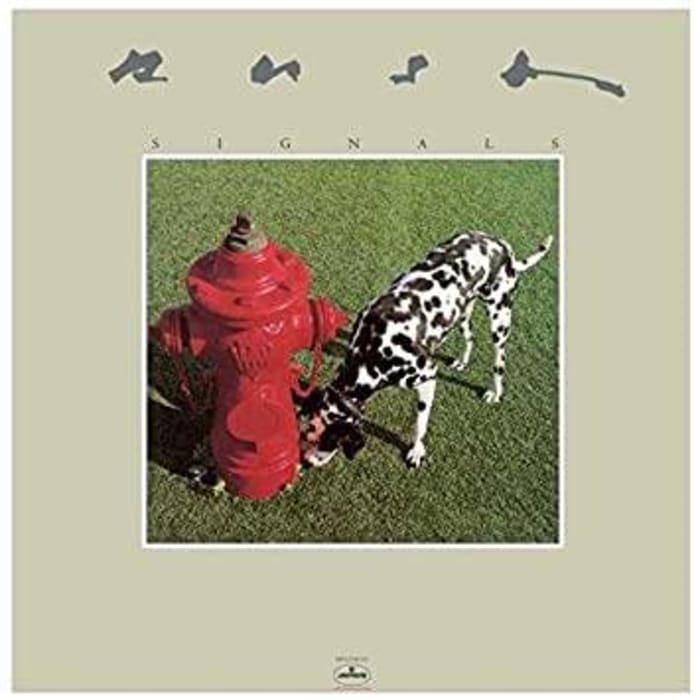
For the sake of putting together a playlist of songs that would attract the casual music fan to Rush, this might be at the top of that list. The lead single off Signals, the radio-friendly "New World Man" was a No. 1 hit for the band in Canada and is the only Rush song to make it into the top 40 on the Billboard singles chart.
"Passage to Bangkok" (1976)
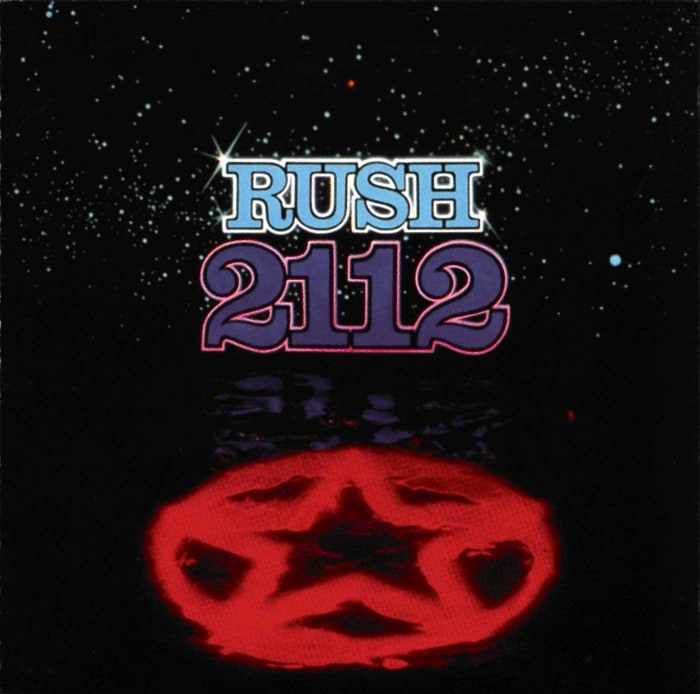
Though the 2112 album is dominated by the epic title track (we'll get to that in a bit), "Passage to Bangkok" kicks off Side Two of the vinyl version and is a standout moment on the record. Music critics have lauded the song for its composition, Geddy Lee's melodic vocals, and amusing Neal Peart lyrics about visiting some of the best places to enjoy a joint or two.
"Red Barchetta" (1981)
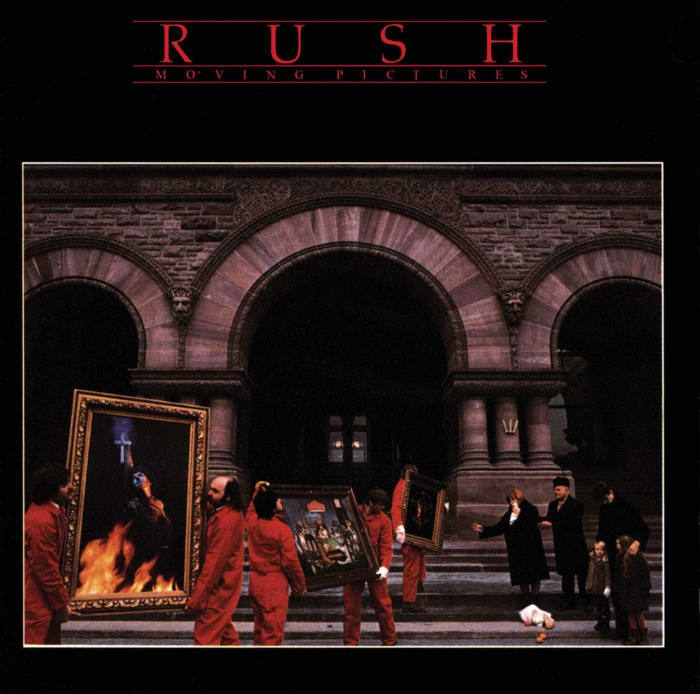
Considered one of the great Rush songs and another special moment from Moving Pictures. Reportedly inspired by the futuristic literary piece "A Nice Morning Drive," Rush often found its collective creativity through other mediums. A case in point is this song that stands out amid a commercially successful album that focuses on "Tom Sawyer" and "Limelight." When it comes to overall composition and writing, it does not get much better within the realm of prog rock.
"Analog Kid" (1982)
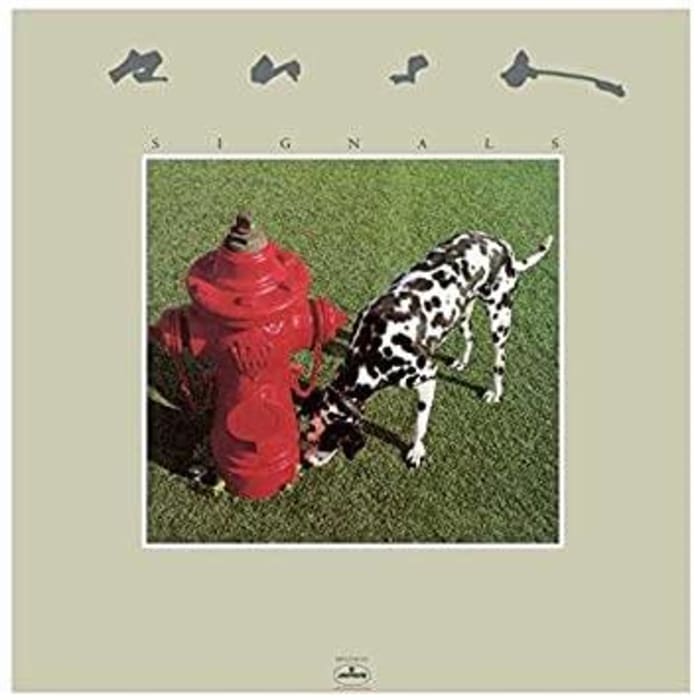
One of Rush's more underrated songs, even though it charted relatively well (No. 19 on Billboard's Mainstream Rock chart). "Analog Kid" is a straightforward, progressive rock song that conjures memories of Rush's earlier work. As the legend goes, Neil Peart wrote the lyrics akin to that of "Digital Man," a deeper cut and even more underrated offering from Signals.
"Roll the Bones" (1991)

From the album by the same name, "Roll the Bones" is not a track that some hardcore early Rush fans even like to acknowledge. That said, it's a unique tune that the band said was about "taking chances." That was certainly the case here for one of the most experimental bands ever. The track's famous rap, written by Neil Peart, was reportedly inspired by the legendary drummer listening to the likes of Public Enemy and LL Cool J.
"Time Stand Still" (1987)
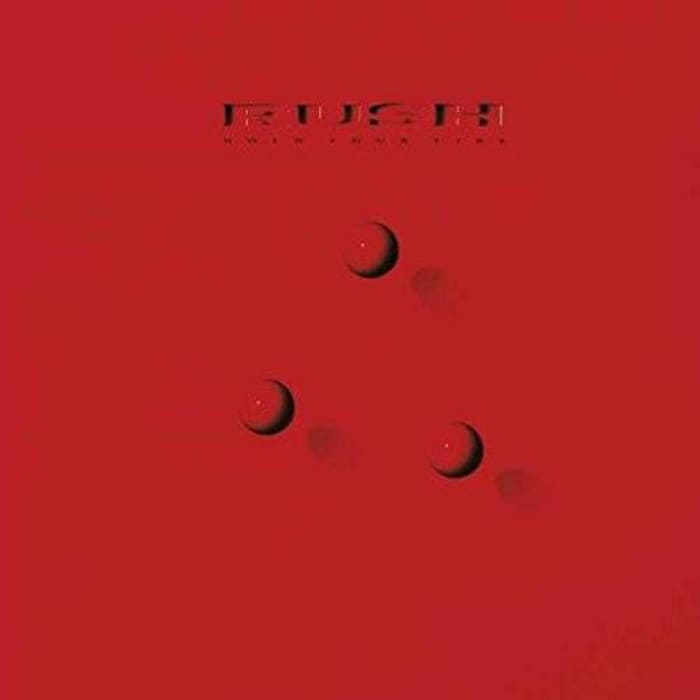
From the Hold Your Fire record of the late 1980s, "Time Stand Still" features 'Til Tuesday's Aimee Mann on backing vocals. It's actually one of Rush's most successful singles, reaching No. 3 on Billboard's U.S. Hot Mainstream Rock Tracks chart. There is a radio-friendly pop tinge, but the song is still a quality single worthy of inclusion on this playlist. Neil Peart said the lyrics detail his time as a band member.
"YYZ" (1981)
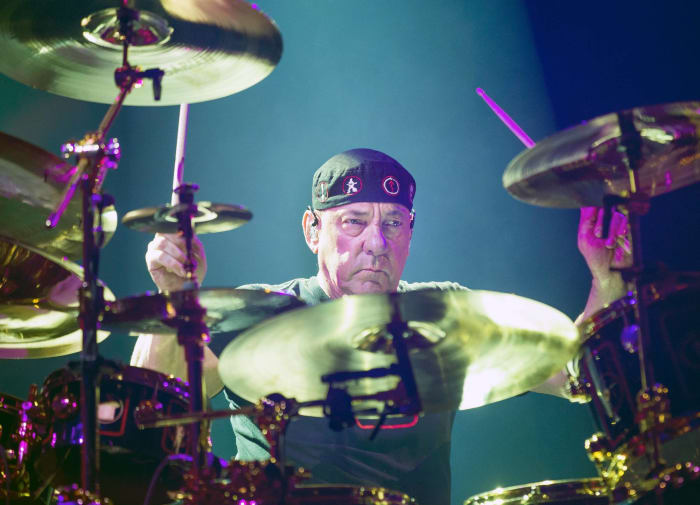
Rush was undoubtedly known for its often-epic instrumental works. While "YYZ" clocks in at a tight 4 minutes, 25 seconds, it's one of the band's best music-only efforts. Rush aficionados and rock critics hail it as one of Neil Peart's most memorable drum performances. Yes, the Moving Pictures' studio version is where it all began, but to capture Peart in his true element, check out the offering from the live 1981 Exit... Stage Left LP.
"2112" (1976)

At 20 minutes, 33 seconds, the title track to the ambitious 1976 album takes up the entire first side of the vinyl release. The Overture and second part known as The Temples of Syrinx are perhaps the best known of this gargantuan opus. It's one of Rush's greatest efforts, and though it's the opener of the studio album, the piece fits well at the end of this particular playlist. Kind of like the end to a live concert set before the encore.
"The Garden" (2012)

An unheralded piece of music, it closes the band's 19th and final studio album, Clockwork Angels. This conceptual album is one of Rush's most diverse projects, and "The Garden" is a perfect example. There are elements of musical theatrics with a melodic base, almost Pink Floyd-ish, that is a solid way to end this playlist — especially after the bombast of something like "2112."
A Chicago native, Jeff Mezydlo has professionally written about sports, entertainment and pop culture for parts of four decades. He was an integral member of award-winning sports sections at The Times of Northwest Indiana (Munster, Ind.) and Champaign (Ill.) News-Gazette, where he covered the NFL, PGA, LPGA, NCAA basketball, football and golf, Olympics and high school athletics. Jeff most recently spent 12 years in the editorial department at STATSPerform, where he also oversaw coverage of the English Premier League. A graduate of Northern Illinois University, Jeff's work has also appeared on such sites at Yahoo!, ESPN, Fox Sports, Sports Illustrated and NBA.com. However, if Jeff could do it again, he'd attend Degrassi Junior High, Ampipe High School and Grand Lakes University
More must-reads:
- 25 great bands that feature more than one primary vocalist
- The greatest metal acts that formed in the 2000s
Trending in Entertainment
Customize Your Newsletter
 +
+
Get the latest news and rumors, customized to your favorite sports and teams. Emailed daily. Always free!
Use of this website (including any and all parts and
components) constitutes your acceptance of these
Terms of Service and Privacy Policy.
This site is for entertainment purposes only.
There is no gambling offered on this site.
Gambling Problem? Call 1-800-Gambler.
